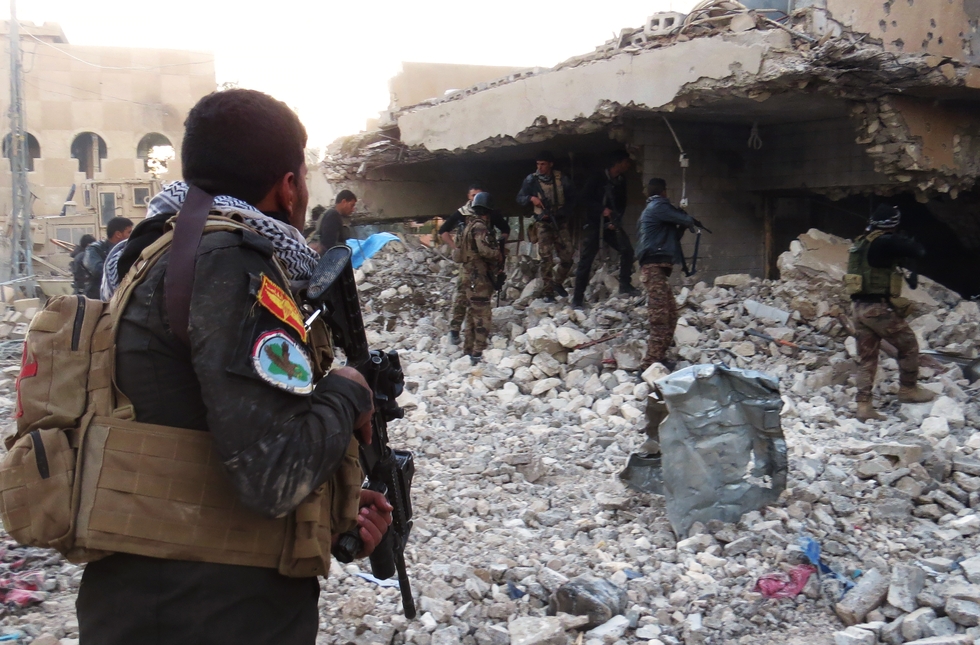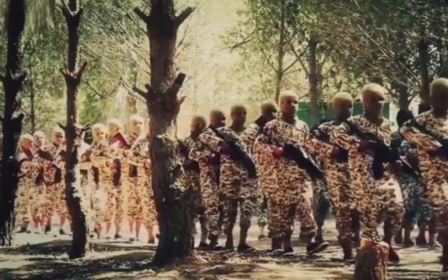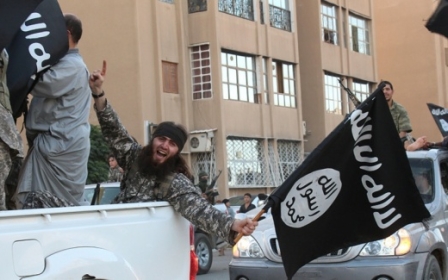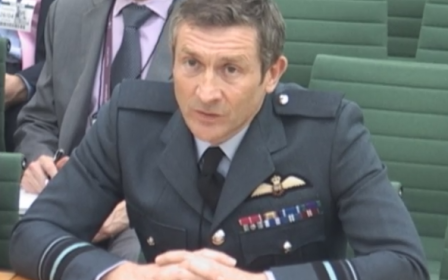IS using Iraqis as 'human shields' as civilian toll mounts in Mosul

DIBAGA, Iraq - Ahmed Salih was having lunch with his family when the deafening crump of mortar fire shook his home and sent his children into sobs of fear.
The 26-year-old stepped outside to find that Islamic State fighters had placed a mortar tube next to his house in anticipation of the arrival of Iraqi forces, who on March 24 had kicked off its campaign to liberate IS-held territories east of the Tigris.
IS hopes that using civilians as "human shields" for their weapons will prevent them being targeted by the Iraqi army and its coalition allies. But the tactics do not always work.
“My neighbours had an IS mortar in their house and it was bombed. Three people were killed,” said Salih.
Salih was one of an estimated 2,000 civilians who fled their homes when the Iraqi army, backed by coalition air strikes, took villages about 60km south of Mosul last month. He found safety in the Kurdish region, where he now lives in a camp with hundreds of other Sunni refugees.
Most refugees spoken to by Middle East Eye had stories of being locked in their homes by IS, snipers hiding on their rooftops, and being forced to share their homes with militants.
Muhannad al-Sabawi said IS fighters rounded up civilians and blended in when it was clear that Iraqi forces were closing in on his village
“IS knew this and came and stayed in the houses with us,” said Sabawi, a father of three children.
“I asked one of them to leave because the army was targeting the house, but he refused. They forced us to stay indoors and said that if we went out they would kill us.”
IS has also mined the outskirts of villages, resulting in a number of deaths as civilians try to flee.
A young man, who did not want to be named, lost his mother, sister and cousin to a mine as they fled their village at night. “We couldn’t see them, it was raining and the grass was tall,” he said.
He was forced to leave his mother and cousin behind, but carried his sister hoping to find medical help. “I had to leave her when I realised she was dead,” he said.
In the line of fire
According to humanitarian agencies there are still hundreds of thousands of civilians living in areas in between IS and Iraqi forces advancing on Mosul.
“IS continues to use civilians and civilian infrastructure in violation of the Law of Armed Conflict as a means to protect themselves from ISF [Iraqi Security Forces] and coalition airstrikes," said Kyle Marsh, a colonel in the coalition forces.
"The government of Iraq and ISF, with their supporting coalition, take great care in mitigating the death or injury to civilians."
But some civilians are quick to blame the Iraqi forces for civilian casualties, claiming the military was either unable or unwilling to discriminate between IS and innocent locals.
According to Sheikh Nasshan al-Luhaib, a militia leader, more than 25 people from his tribe were recently killed by Iraqi military fire in Haj Ali, a town that sits on the Iraqi army's road to Mosul.
“The coalition has made no mistakes yet, but I fear the Iraqi planes because they consider all of us IS,” he said.
Mounting tensions between local Sunni tribes and the largely Shia Iraqi military force have further exacerbated long-standing tensions in a battle where sectarian violence has often taken centre stage.
“If the military enter my area and hurt civilians, my fight will be with them more than with IS – now I have two enemies, IS and the Iraqi forces."
A recent escalation in coalition air strikes has led to an increase in civilian deaths. According to Airwars, a monitoring project based on local media and social media reports, 165 civilians were killed by coalition air strikes in March alone.
These figures are not confirmed by coalition officials.
“Iraqi security forces have been and will continuously be advised to avoid civilian casualties wherever possible,” said Michael Stephens of the Royal United Services Institute.
“However this advice is not always followed, partly due to a wide gap in professionalism across the force – while some units will observe these rules, others will not."
Fearing coalition strikes, the militants sent a number of shepherds and their cattle to graze on the battlefield and recover the body.
“IS will not gain anything from killing civilians because they use them to protect themselves,” said Sheikh Almuqdad al-Sabawi, head of the Sabawi tribe.
Around him, Sabawi men nodded in agreement. “When civilians leave, IS fighters leave too and go where there are other civilians for their own protection,” said one of the men.
New MEE newsletter: Jerusalem Dispatch
Sign up to get the latest insights and analysis on Israel-Palestine, alongside Turkey Unpacked and other MEE newsletters
Middle East Eye delivers independent and unrivalled coverage and analysis of the Middle East, North Africa and beyond. To learn more about republishing this content and the associated fees, please fill out this form. More about MEE can be found here.




